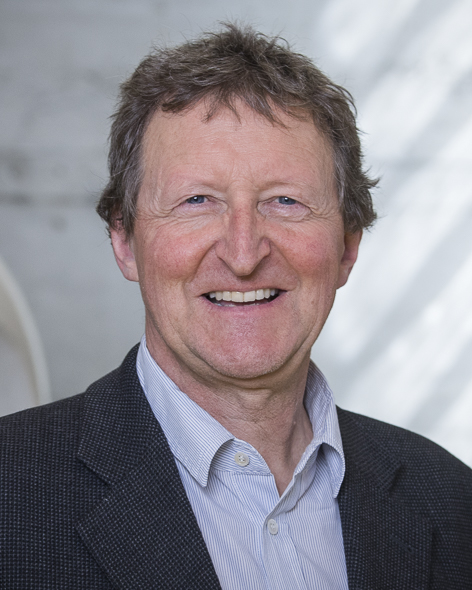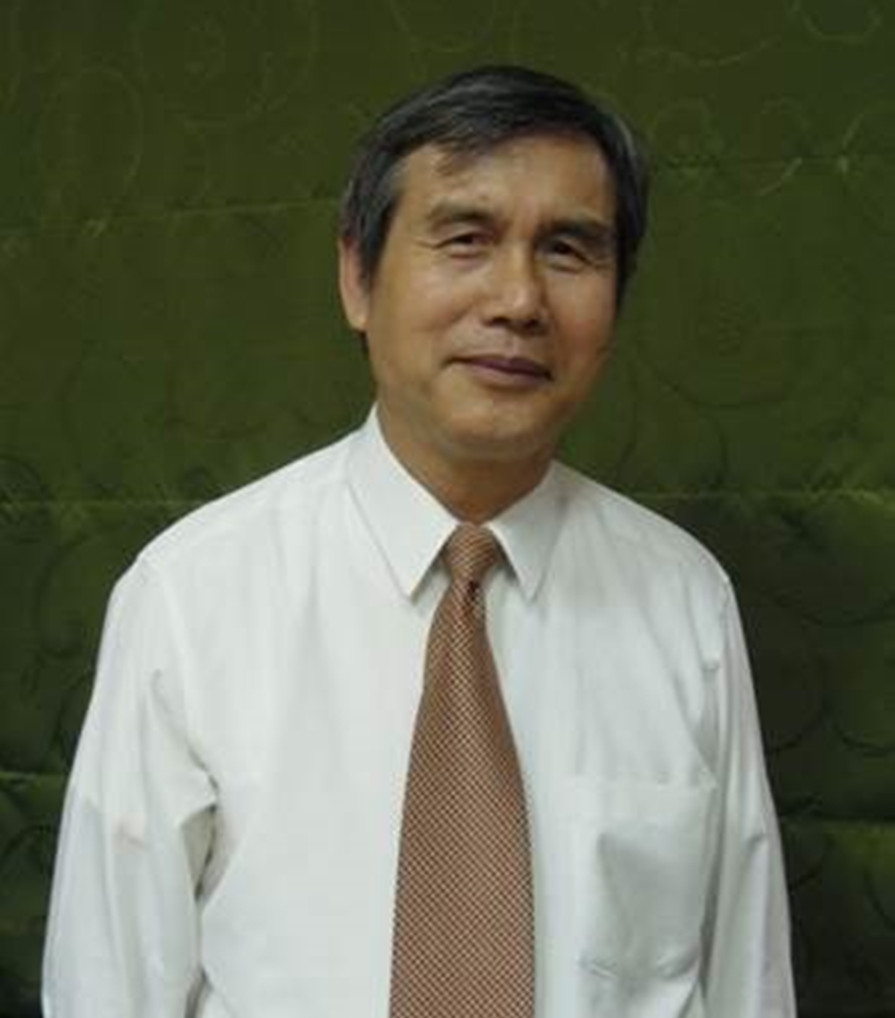Keynote Speakers

Professor Philipp Gonon
University of Zurich, Switzerland
Philipp Gonon studied Law and Journalism from 1974
until 1976 at the University of Fribourg,
Switzerland. Afterwards he continued studying
Pedagogy at the University of Zurich, Switzerland,
and at the Free University of Berlin, Germany. From
1986 until 1992 he became research assistant and
lecturer at the Institute of Pedagogy of the
University of Bern, Switzerland where he finished
his postdoctoral lecture qualification in 1997. From
1999 until 2004, Gonon was appointed to Full
University Professor at the Chair of Vocational and
Operational Further Education at the University of
Trier in Germany. Since 2004, Gonon has held the
Chair of Vocational Education and Training and
Vocational Teacher Training at the University of
Zurich, Switzerland. Gonon has done research about
Georg Kerschensteiner, the relation of schooling and
vocation and about the European educational reforms.
He specialised in the areas of historical and
international comparative educational research. In
addition, Gonon does research in quality assurance
and evaluation, modularization in Vocational
Education and he publishes about Philosophy and
Theory of Vocational Education.

Professor Jon-Chao Hong
National Taiwan Normal University, Taipei, Taiwan
Jon-Chao Hong has received his doctoral degree in
Education from the University of Illinois,
Champaign-Urbana, and is currently working as a
Chair professor in the department of industrial
education at National Taiwan Normal University
(NTNU). As the director of Digital Game-based
Learning Laboratory (GBL), he has developed 9 web
games, 24 educational Apps and VR for skill training
and language learning.
As the secretary general of Taiwan Creativity
Development Association, he also organizes several
creative contests relevant to STEAM, such as
PowerTech Contest to invite elementary, junior and
senior high school students to produce robots or
miniatures in the morning and using these to compete
in the afternoon to ensure students’ hands-on
creation without parents or teachers’ assistance. As
the executive secretary of International Exhibition
for Young Inventors (IEYI), he also promotes the
innovative contest to give students an opportunity
to stimulate their science inquiry abilities, and
also cultivated students’ creativity and thinking
attitude of STEAM. In addition, he has published a
number of academic articles in international
journals related to digital game-based learning and
thinking skills and creativity about 45 articles on
Social Sciences Citation Index (SSCI) journals and
received the Outstanding Research Prize from
Ministry of Science and Technology in Taiwan.
Applying AIoT to Design Games for Enhancing Social Interaction in Learning with Fun
Abstract:
Fun and learning can be viewed as two ends of a
continuum. At the extreme of fun, players will not
learn; on the other hand, at the extreme of
learning, there is no fun created by the game
design. To balance fun and learning, it is necessary
to create various interaction approaches, for
example, playing a game with collaborative and
competitive elements involving social interaction.
In line with this, we apply AI and the Internet of
Things to design educational games. AI technology
can be divided into two aspects: discriminative AI
and generative AI, while the Internet of Things
(IoT) can be achieved by using Wi-Fi. By combining
AI and IoT, we develop games to enhance learning
through social interaction. Up to date, we have
developed three types of human-device interfaces,
including moving virtual Easter Island monoliths by
three persons in rhythm-based collaboration;
competitive butterfly catching; and language
learning (e.g., Chinese idioms, radical assembly,
and English vocabulary) by fishing for characters or
letters. Most judgments on correct answers are made
using discriminative AI, but in fishing for English
words, the device can generate vocabulary meanings
if players randomly string together letters and do
not understand the resulting words. Additionally,
there are two types of human-device interaction in
this game: one is to tilt the smartphone or iPad to
control the cursor, and the other is to slide the
cursor to interact with the targets; the latter is
particularly suitable for novices in digital game
playing (e.g., some elderly). Moreover, the design
of AIoT also supports remote and collaborative
gameplay from a distance.

Professor Jeffrey S. Cross
Institute of Science Tokyo, Japan
Jeffrey is a
professor, manager, and researcher, who has worked
in Tokyo, Japan for 30 years. He teaches courses on
academic writing, materials engineering, edX online
course development, educational video-making and
engineering measurements. He is the founder and
general manager of Tokyo Tech's online education
development, which produces online courses hosted on
edX. He also develops online courses and monitors
online course quality using learning analytics.
Prof. Cross' lab has 20 grad students and staff that
undertake cutting edge research on renewable energy
policy, biomass waste to energy conversion, hydrogen
separation and storage, novel catalysts, machine
learning applied to chemical reaction engineering,
AI and VR/XR use in education, explainable AI and
environmental toxicology.

Associate Professor Mitsunori Hirogaki
Kyushu University, Japan
Mitsunori Hirogaki graduated with a Bachelor of Science: Commerce from Doshisha University and pursued his Master's Degree in Commerce and Ph.D.: Commerce from Kobe University. Dr. Hirogaki is currently an Associate Professor of Marketing Strategy at Kyushu University, Graduate School of Economics, Department of Business and Technology Management (QBS Business School), where he teaches Marketing Strategy and International Marketing. He also teaches marketing research and consumer behavior at Ehime University.
He has served as an administrator in various capacities at Kyushu University and as one of the professors in various training programs dealing with Marketing in short-term executive programs, an Introductory Education Program for Freshman MBA students, and a regular feature on QTnet "Morning Business School" radio educational program aired by FM Fukuoka, and at Nikkei Business School. As a member of a research group at the Center for the Study of the Creative Economy (Doshisha University), he works with big data analysis to construct systems that identify seeds of innovation. Dr. Hirogaki’s current research focuses on Cross-Cultural Consumer Behavior in international marketing and marketing strategies in mature, developed societies.
He has published numerous papers in international journals such as Journal of Marketing Management; International Journal of Retail & Distribution Management; International Review of Retail, Distribution and Consumer Research; International Journal of Entrepreneurship and Small Business; Micro and Macro Marketing; International Journal of Technology Transfer and Commercialisation; and International Journal of Business and Globalisation. He is a member of the Japanese Economic Association, Japan Society of Marketing and Distribution, Kyushu Association of Economic Science, and Japan Association for Consumer Studies.
Invited Speakers

Dr. Shahid Anjum
Universiti Teknologi Brunei (UTB), Brunei Darussalam
Dr Anjum is currently serving as a Deputy
Director of Brunei’s Crown Prince Creative,
Innovative Products and Technological Advancement
(CIPTA) Award’s Seminar Committee, a Deputy Director
of ‘Digital and Creativity Research Thrust’ at
School of Computing and Informatics, a Senior A.
Professor at School of Business and a member and
coordinator at ‘Center for Innovative Engineering’
of Universiti Teknologi Brunei (UTB). Dr. Anjum has
appeared on National or local TVs in different
countries. Dr. Anjum is a Certified Data Privacy
Solutions Engineer from Information Systems Audit
and Control Association (ISACA), a Certified
Investment Manager from Moody’s Canadian Securities
Institute and Certified in Banking Financial Risks
and Regulations from Global Association of Risk
Professionals (GARP). Dr. Anjum has earned his Ph.
D. from Nagoya University, Japan for research topic
of Early Warning System for Financial Risk using
Data Mining Approach. He has studied in the “Master
of Computer Science program” at the Department of
Mathematics and Computer Science, School of
Engineering, University of Detroit in Michigan, USA.
He also holds M. Phil. Economics degree.
Dr. Anjum has accumulated experience at various
educational and financial institutions in Canada,
Japan, USA, Pakistan and Philippines. He has served
as an Adjunct Professor at College of Business &
Information Technology, Lawrence Tech., Michigan for
over 6 years, worked at Royal Bank of Canada and at
Asian Development Bank Manila, besides, serving as
member of various Board of Directors of Innovative
Corporations.
Dr. Anjum has served as a Program Chair for the
International Conference on Database and Data
Mining) held in Chicago, USA in 2015, a moderator to
keynote speeches and expert forums, has served as
Session Chairs to over ten conferences and as a
technical committee member to over 20 conferences.
Dr Anjum’s research has received various Best Paper
Awards in Tokyo and ASEAN countries. Dr. Anjum is a
senior member of various Computer and Information
Technology, Finance, Management and Development
Economics related associations and societies. Dr.
Anjum is a widely published author and his
publications have appeared in reputable journals
including in IEEE. Series and Springer as well as
chapters in book series. Dr. Anjum is currently
editing three books for Taylor and Francis Group and
IGI Global on fintech & digital start-ups, Digital
Banking & Digital Finance as well “Cracking the
Code: Cyber Security Technology Enhancement of
Digital Ecosystem”.
Dr. Anjum has conducted and has led various
consultancy projects as well as training workshops
and mentorship for Entrepreneurs’ bootcamp. for at
Darussalam Enterprise (DARe). As Principal
Researcher, Dr. Anjum has been a part of team for a
project submitted to Brunei Research Council to
implement technology transfer from Malaysia and
Switzerland to Brunei regarding setting up of
Islamic Fintech Lab, gold and silver-based mobile
wallet applications, embedded with secured
blockchain and Ethereum technology.
